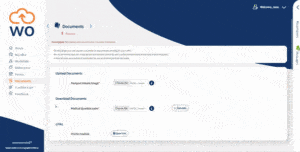Our recent webinar in association with in-house recruitment (IHR) provided an interesting barometer into what’s most important for recruiters and hiring managers when it comes to employee onboarding.
The top three employee onboarding issues we see are:
1. Engagement – improving the onboarding experience
Engagement was the number one theme that people wanted to know more about. It refers to the overall experience a candidate has as they are joining an organisation.
An effective onboarding process will make a new starter excited and enthused about the role they are about to enter. It will make them feel welcome and an integrated part of a team.
A lack of engagement and negative experiences greatly increases the risks of a candidate dropping out. It can undo all of the hard work done to recruit the right person for a role.
2. Turnover – reducing onboarding dropouts
The second most common request was to learn more about the issue of turnover. This is when a successful candidate fails to complete the onboarding process – either during onboarding or in their initial weeks/months.
A recent survey found that 46% of workers have had negative onboarding experiences and for one-in-ten it caused them to dropout. It’s an issue that can have major business consequences.
High turnovers can send recruitment costs soaring and create general disruption within an organisation as roles remain unfilled for extended periods.
3. Efficiency – improving onboarding speeds
The third most requested topic was efficiency and ways to reduce the time it takes to process new starters. This again links to the other two topics as the longer onboarding takes, the more likely candidates will have negative experiences and drop out.
Typically, paper documentation is still used to handle contracts and offer letters. This means it can often take weeks before paperwork is received, signed and returned.
Onboarding in a remote world
Over the coming weeks, Webonboarding will be taking a closer look at each of these issues and what impact the current health crisis is having on the ways that recruiters and hiring managers handle new hires.




